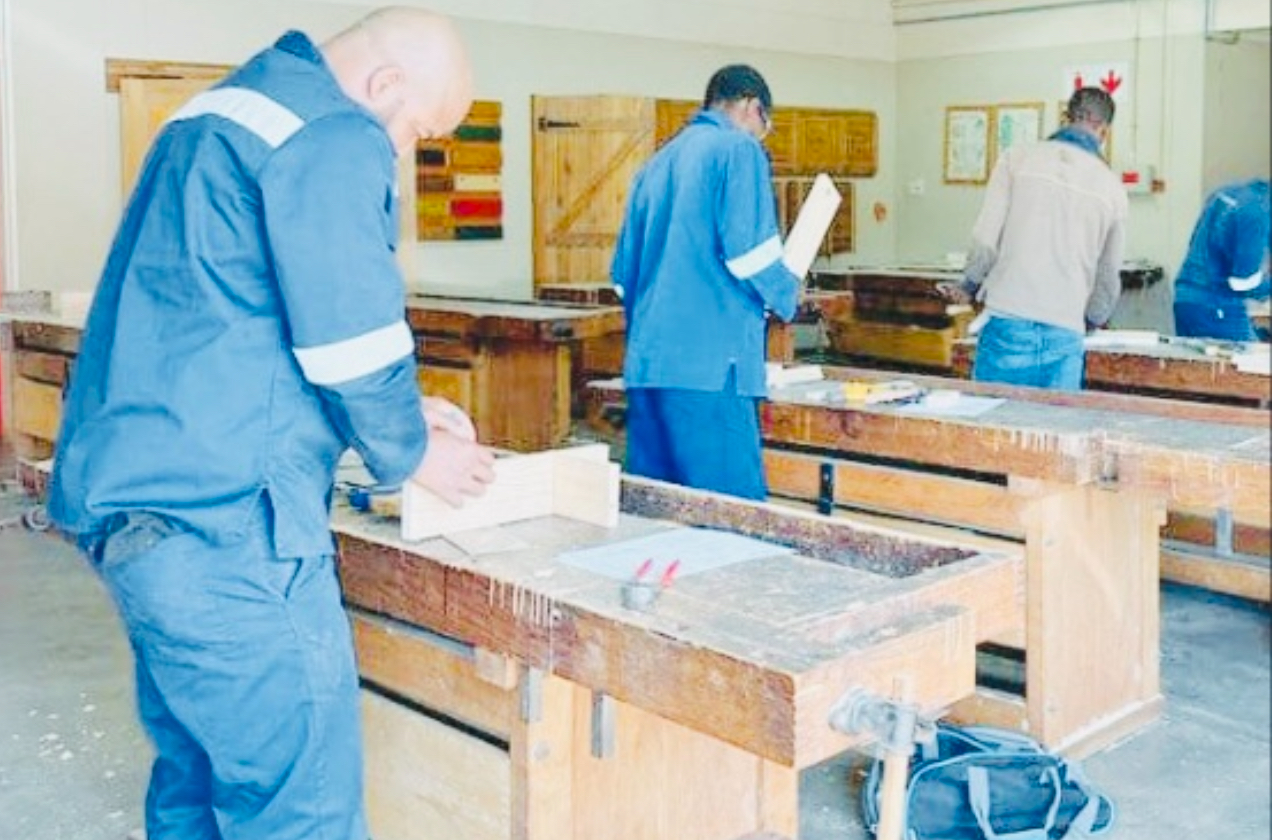Growing up in the vibrant Mhobodleni village near Manzini, Mkhosi Dladla always dreamed of a career in Information Technology(IT).
While his pre-teen peers were engrossed in street football, using a makeshift ball fashioned from plastic waste and discarded cans as goalposts, Mkhosi was busy dismantling and fixing electronic gadgets, from mobile phones and televisions to old radios.
Encouraged by his grandmother—the family’s matriarch and breadwinner—he set up a small backyard workshop, where he repaired watches, phones, TVs, and electric kettles.
After completing high school, Mkhos’'s proceeded to study IT in a tertiary institution. His prospects for a future in IT looks bright, as actions are ongoing to have the private sector or industry participate more in the initial stages of programme design and development by the higher education institutions.
This will ensure that the qualifications are industry fit and meet national and international standards.
To support institutions, the Eswatini Higher Education Council (ESHEC) organised two capacity-building workshops on 17 and 19 September 2024, aimed at assisting higher education institutions improve programme design, development, and internal quality assurance mechanisms.
The workshops, were attended by over 200 participants, including academic leaders, programme coordinators, and quality assurance officers.
They were facilitated by Samuels Squared and focused on aligning academic content with industry needs and international standards.
To ensure programmes continuously meet accreditation requirements, ESHEC provides detailed recommendations and a timeframe for institutions to make necessary improvements.
Most institutions of higher learning are currently working on these improvement plans, with ESHEC’s compliance consultants closely monitoring progress.
Once institutions present evidence of implementation, ESHEC reviews it before granting accreditation. In August 2024, around 19 programmes were accredited after undergoing this rigorous process.
Currently, there are 48 institutions registered with the Eswatini Higher Education Council (ESHEC), of which 11 are government-funded.
Joe Samuels, Director of Samuels Squared, a consultancy brought in to conduct two workshops said the end-game is to ensure that the programmes reflect the unique socio-economic and cultural context of Eswatini to truly serve their purpose.
ESHEC’s CEO, Dr Loretta Mkhonta, told the academic leaders, programme coordinators, and quality assurance officers who attended the workshops that the organisation’s role was not just to regulate but also to guide institutions in their pursuit of excellence. She stressed the importance of collaboration and strengthening the link between employability and diverse industries. ESHEC, established under the Higher Education Act of 2013, is responsible for promoting, accrediting, and coordinating higher education in Eswatini.
Joe Samuels highlighted the key areas covered during the workshops, including needs assessment, programme design and development, and the implementation of internal quality assurance mechanisms.
“These initiatives aim to foster sustainable improvements across the higher education sector,”he said.
The Acting Principal Secretary of the Ministry of Education and Training praised ESHEC for hosting the successful workshops, while Dr Sipho Shongwe, Quality Assurance Coordinator at the University of Eswatini, noted the workshop’s value in equipping participants with the skills and knowledge needed to meet ESHEC’s standards. He particularly appreciated the clarity it provided on previously unclear aspects of programme design and development.
Dr Lomkhosi Mkhonta, Director of Quality Assurance at the Institute for Research Management and Development (IRDM), echoed Dr Shongwe’s sentiments.
She noted that adhering to ESHEC’s standards allows institutions to significantly improve the quality of education they offer, contributing to a more resilient and robust higher education system in Eswatini.
This, she added, would benefit both students and the nation.
The Acting Country Director of the Institute of Development Management (IDM), Karabo Baipidi, emphasised the importance of developing high-quality, relevant learning programmes to meet the needs of emaSwati.
Baipidi stated that IDM is enthusiastic about implementing new academic programmes and expects to see significant changes within the coming year.
Ncamsile Makhanya, from the Matsapha Police Academy, mentioned that the institution had secured full registration from ESHEC, and four of its programmes had been accredited.
Meanwhile, Stella Shongwe, Head of Academics at Limkokwing University of Creative Technology, expressed gratitude for ESHEC's support, noting that the workshop empowered the university to deliver certificates trusted by both students and industry.
“The outcomes of the workshop are driving our research efforts and helping us upgrade our institution to align with current digital migration trends," said Shongwe, adding that the focus is now on e-learning and skills-based programmes, in line with the country's strategic direction.

ESHEC empowers 200 academic staff on quality,relevance.
